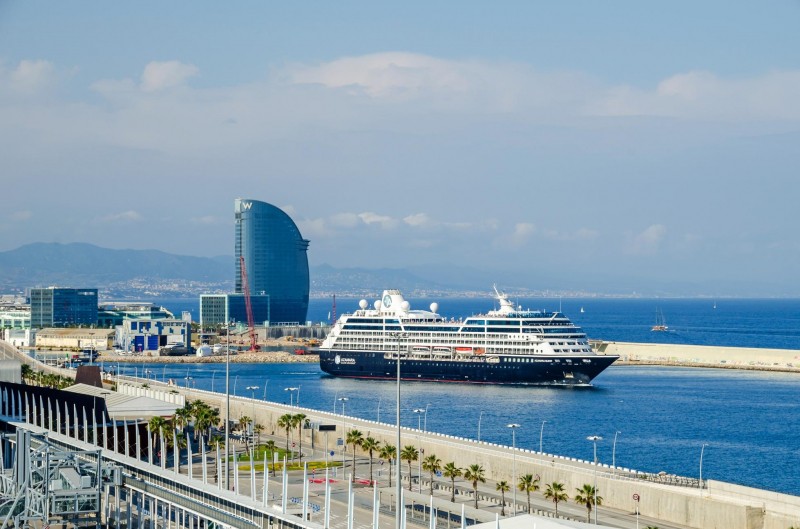You’ve outlined the current split in the cruise industry very clearly—the battle (or rather, dance) between floating metropolises and nimble, high-touch mini-yachts. The rise of smaller, boutique ships is interesting because it represents a kind of inverse reaction to cruise lines’ earlier “bigger is better” arms race.
Instead of bumper cars and water slides, more travelers now want a slower pace, deeper cultural dive, and good WiFi for their vacation Instagrams. The smaller ships’ ability to enter off-the-beaten-path ports or even ban mega-ship-saturated ones (Venice, Dubrovnik) is a real trump card. They can offer experiences where the destination actually matters—and where you don’t have to line up behind 5,000 others to go ashore.
Plus, with regulatory pressure mounting (e.g., city caps, emissions targets), lines that can adapt with fuel-efficient, nimble designs sidestep a lot of headaches—environmental and legal. Luxury, by its classic definition, feels more at home on a smaller scale: thread counts, not headcounts.
Megaships aren’t going away, though—they’re perfect for multi-generational trips, families, and people who want an all-in-one vacation. For some, the ship is the destination. But as travel becomes a badge of savvy (and sometimes of conscience), smaller ships and curated itineraries attract those who want to tell a story rather than just post a pool selfie.
It really does look like this is going to be a “have your cake and eat it too” market. Cruise lines willing to specialize, diversify, and innovate at both ends will dominate. Those who try to be everything to everyone, or stick too long to the old formulas, may find themselves adrift. If you were going to book a cruise today, which side would tempt you—sky-high slides or a chef-led market tour in a tucked-away Mediterranean harbor?
Are Smaller Cruise Ships the Future of European Cruising?
Mega-Cruise Ships Face New Limits
For years, cruise companies focused on building bigger ships with more decks, more passengers, and attention-grabbing attractions. But now, some of Europe’s most famous ports—like Barcelona and Venice—are pushing back, restricting or even banning large cruise vessels.
Cannes Leads the Change
Starting January 1, 2026, Cannes will stop allowing ships carrying over 1,000 passengers to dock in its harbor. Larger ships must anchor offshore and use tender boats for passengers, with daily shore visits capped at 6,000 people.
The city calls this “drastic regulation” to achieve tourism that is «less numerous, less big, less polluting, and more esthetic.» The goal is to balance tourism’s economic benefits with environmental protection—not to ban cruise ships, but to set smart limits.
In 2024 alone, Cannes hosted 175 ships and over 450,000 passengers. This new policy represents a major shift, welcomed by local environmental groups.
Europe’s Ports Tighten Restrictions
Cannes isn’t the only city taking action:
— Venice banned large cruise ships from entering its lagoon in 2021.
— Amsterdam will cap cruise visits at 100 ships per year by 2026, aiming eventually to ban them altogether.
— Palma de Mallorca allows only three ships per day, and just one can carry over 5,000 passengers.
— Barcelona capped ship arrivals and banned the largest vessels from its city-center port.
— Other ports like Dubrovnik, Zeebrugge, and Nice are also imposing stricter limits.
The trend is clear—European cities want smaller, cleaner, and better-managed cruise tourism.
Industry at a Crossroads
Large cruise lines like Royal Caribbean still bet on mega-ships packed with water parks and attractions, geared toward a younger crowd. But as regulations grow, the industry faces a choice: adapt to new rules and create smaller, more sustainable cruise options, or risk losing access to top destinations.
Ready for a New Kind of Cruise?
Smaller cruise ships mean more intimate experiences, access to unique ports, and a more relaxed pace. If you’re dreaming of discovering Europe in a fresh way, this is the perfect time to try it.
Book your next holiday with MWR LIFE and experience the future of cruising—environmentally friendly, immersive, and unforgettable.
Ready to set sail? Contact MWR LIFE for exclusive deals on your next European cruise adventure!
